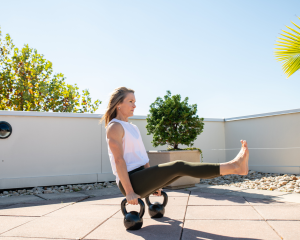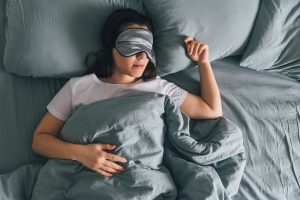We are on the brink of that one day a year, Daylight Savings Time, where experts say most American’s lose up to 40 minutes of sleep! About 70% of the world will set their clocks one hour ahead Sunday, March 12 from 2AM to 3AM. Think it’s a “walk in the park” to adjust? Think again!
Stroke and heart attack risk? Accidents at the workplace? Cyberloafing? All of these, and more, are associated with Daylight Savings Time, or DST. And, guess who gets hit the worst? That’s right, it could be YOU!
So, this great idea supported by Benjamin Franklin has these kinds of effects on hundreds of millions of Americans? Yes. In fact, Franklin himself said, “All the difficulty will be in the first two or three days; after which the reformation will be as natural and easy as the present irregularity.” (The actual author of Daylight Savings Time is credited to George Vernon Hudson, a New Zealand artist and amateur bug collector, in 1895.)
According to the National Sleep Foundation, the average person sleeps 40 minutes less the night following the springtime change than they do on a typical night. The majority will adjust by Wednesday (March 15), yet others doggie paddle their way through the entire week unconsciously looking to the weekend where they can get more shut eye.
This struggle to adjust is greater with the spring shift compared to “falling back” in the fall. “Most people actually have a harder time adjusting when we ‘spring forward,’ because we’re losing an hour of sleep,” sleep specialist and clinical psychologist Dr. Michael Breus says. And those of us who are already chronically sleep deprived can’t afford to lose any more.
Workplace and vehicular accidents seem to also increase the days after DST. So drivers beware!
Surfing the web at work for personal reasons, or cyberloafing, peaks the day after DST. A 2012 Journal of Applied Psychology study found that the incidence of cyberloafing significantly increased in more than 200 metropolitan regions during the first Monday after DST. The team of researchers attributed the shift to a lack of sleep and thus lack of workday motivation and focus.
Dr. Christopher Barnes, an associate professor of management at the University of Washington who researches sleep deprivation in the workplace says of the March ‘spring forward’, “…While most people are sleep deprived already, the effects of even 40 minutes are noticeable.”
Dr. Martin Young and associate professor in the Division of Cardiovascular Disease at the University of Alabama-Birmingham says, “The opposite is true when falling back in October.” Young says the Sunday morning time change doesn’t require an abrupt schedule change but heart attack risk peaks Monday when most people rise earlier to go to work.”
Young says it is not known why this happens but has several theories: sleep deprivation, the body’s circadian clock and immune responses all can play a part when changing the time by an hour and can be detrimental to your health.
In a 2016 study of 3,033 patients hospitalized during the week following a daylight savings time change were 8% more likely to suffer an ischemic stroke, the most common type of stroke.
Dr. Jori Ruuskanen, MD, PhD of the University if Turku in Turku, Finland, who helped conduct the study says, “Previous studies have shown that disruptions in a person’s circadian rhythm, also called an internal body clock, increase the risk of ischemic stroke, so we wanted to find out if daylight savings time was putting people at risk.”
Dr. Ruuskanen’s study also found people diagnosed with cancer were 25% more likely to have a stroke during that time, and people older than 65 were 20% more likely to have a stroke. Ruuskanen offers that the likelihood of a stroke is highest in the morning hours.
“Every cell in the body has its own clock that allows it to anticipate when something is going to happen and prepare for it. When there is a shift in one’s environment, such as springing forward, its takes a while for the cells to readjust… The internal clocks in each cell can prepare it for stress or a stimulus. When time moves forward, cell clocks are anticipating another hour to sleep that they won’t get, and the negative impact of the stress worsens; it has a much more detrimental effect on the body” says Dr. Young. Your body eventually synchs with the environment.
Last, the worst hit by DST? Kids. Regular bed times and consistent habits are especially important for kids. Dr. Breus suggests if your kids stay up until 11pm on Friday night, make it 10pm. “Since they are losing the hour, they need to go to bed earlier.” They will feel the rewards come the next school day.
To combat the effects of DST, the National Sleep Foundation recommends sleeping in Sunday morning and taking a nap that afternoon. The foundation offers some advice too as part of Sleep Awareness Week in March.
- Most adults need 7-9 hours of sleep to function properly.
- Leave a couple of hours between eating and going to bed.
- Turn off mobile devices before you head to bed. Blue light from the screens can affect your ability to sleep.
- Make your bedroom ALL about sleep: use a comfortable mattress, pillow and bedding, and keep your room dark.
- Create a bedtime ritual. Make deep breathing, stretches and other relaxing exercises part of your pre-bed routine.
Dr. Breus includes two more pieces of advice for the only marginally sleep deprived: “On the Wednesday before the time change, go to bed 15 minutes earlier. On Thursday, go to bed another 15 minutes earlier, and another 15 the next two nights so that by Saturday you are going to bed an hour earlier. Last, he suggests limiting alcohol intake the weekend of a DST.
Breus says “Even though alcohol makes you sleepy, it prevents you from reaching those all-important deeper stages of sleep. So if you are already going to be losing an hour of sleep, the last thing you need is poorer quality sleep.”



